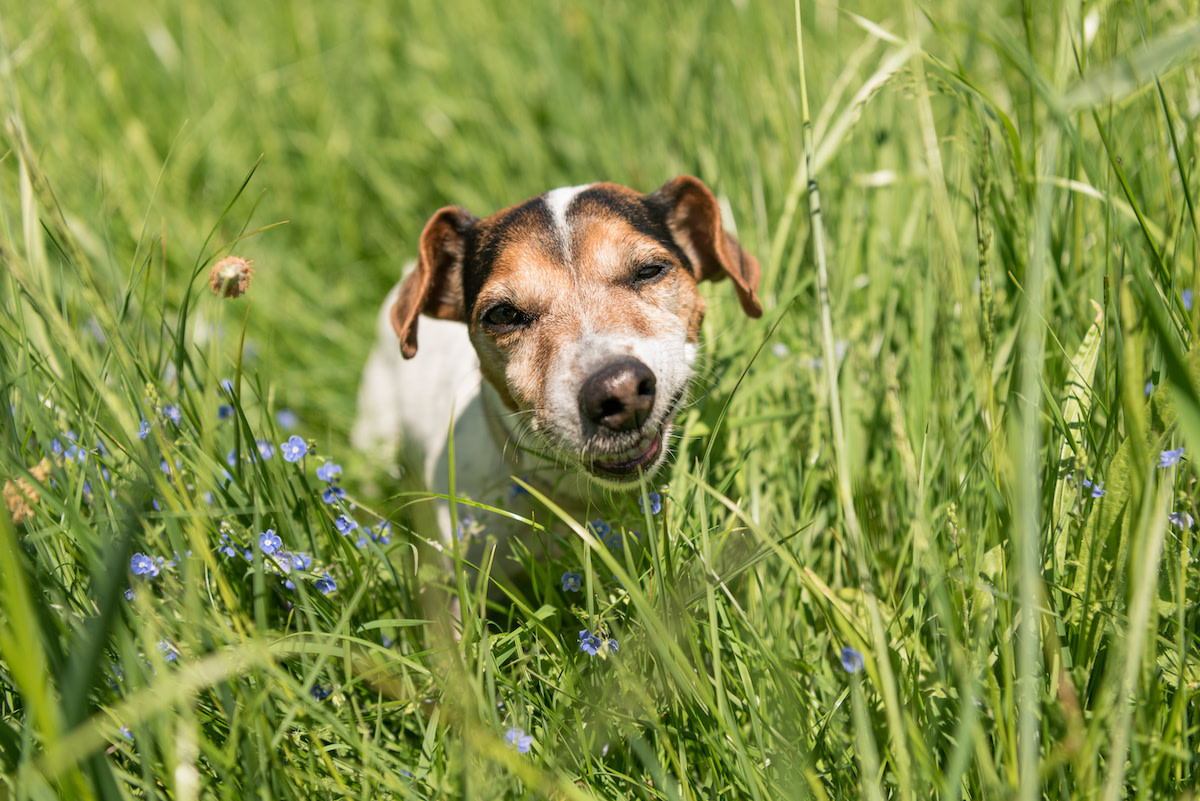Why Do Dogs Eat Grass? 4 Reasons Dogs Eat Grass
Written by MasterClass
Last updated: Mar 11, 2022 • 2 min read
It’s a common misconception that dogs only eat grass when they have an upset stomach, but it’s rare for dogs to show signs of illness before eating grass. Learn more about the reasons why dogs eat grass and what to do if your dog eats a lot of grass.
Learn From the Best
Why Do Dogs Eat Grass?
Eating grass is part of normal dog behavior. Dogs are omnivores, meaning their diet consists of both animal protein and plants, and there are specific reasons dogs eat grass.
- Dogs like the taste of grass. Sometimes the simplest answer is the right one in that your dog may eat grass simply because they like the way it tastes, smells, or feels.
- Eating grass is an instinctual canine behavior. Domesticated dogs evolved from wild dogs. Their ancestors roamed freely, hunting wild prey. They would eat the meat, bones, organs, and stomach contents of their prey. Since the stomach contents of wild dogs’ prey largely consisted of grass, researchers hypothesize that grass became a normal part of dogs’ diets as they were domesticated.
- Some dogs have a nutritional deficiency. In some cases, a dog might be eating grass out of a nutritional need. Dogs need a healthy source of fiber in their diets in order to ensure optimal pet health, so this may explain why some dogs search for certain types of grass to nibble on. Grass also provides roughage—tough indigestible fiber that facilitates healthy digestion.
- Some dogs have an underlying illness. Though grass eating is typically not an indicator that your dog is sick, it can be triggered by an underlying illness such as inflammatory bowel disease or pancreatitis. If your dog is exhibiting other signs of illness or excessive weight loss, contact your veterinarian.
Is Grass Safe for Dogs to Eat?
Though grass itself presents no threat to your dog’s health, herbicides, fertilizers, and pesticides that are applied to grass can be harmful to your dog. Animal droppings can spread intestinal parasites such as hookworm and roundworm. When your dog eats grass infected by these parasites, the worms take hold in their gastrointestinal tract, causing a whole host of health issues. Puppies and younger dogs are most at risk of catching a harmful parasite, as their immune systems are still developing.
What to Do if Your Dog Is Eating Grass
It’s perfectly healthy for dogs to occasionally eat grass, but if your dog is also consuming non-food objects along with grass, it may be cause for concern. Pica is the term given to the condition in which a dog regularly eats non-food items such as rocks and dirt. It is typically associated with nutritional deficiency. If your dog is eating dirt in addition to grass, talk to your vet about putting them on a high-fiber diet. Look for dog food that contains lots of fruits, vegetables, and whole grains.
Want to Learn More About Training the Goodest Boy or Girl?
Your dream of having a dog who understands words like “sit,” “stay,” “down,” and—crucially— “no” is just a MasterClass Annual Membership away. The only things you’ll need to train up a well-behaved pup are your laptop, a big bag of treats, and our exclusive instructional videos from superstar animal trainer Brandon McMillan.
